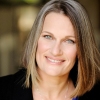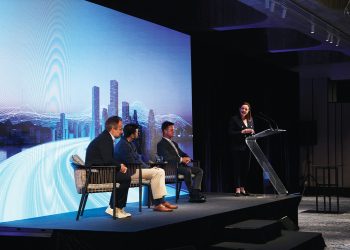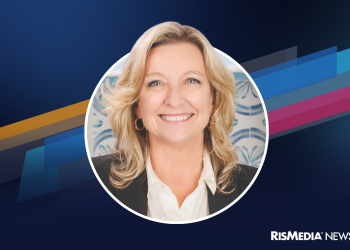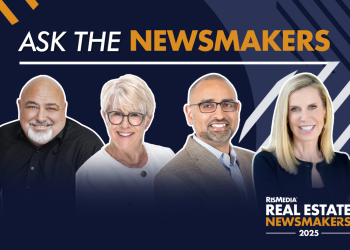Walking through Temple Square in Salt Lake City this past January, I found myself asking our friend and guide non-stop questions about the architecture, art and the Mormon faith. At some point, one of the friends in our group looked at me laughingly and asked, “Do you ever stop learning?” The answer to that is a resounding no. I love to learn for the sake of learning and understanding.
As I thought about the topic for this article, the story from Salt Lake City kept replaying in my mind. We often hear about leverage in regard to team-building, or hiring a lawn service, a cleaning company or even a personal shopper. Less often have I heard it applied to learning, and that’s a huge miss in our industry. Generally, we recognize that people are the most valuable asset of companies and organizations, and at the same time, we overlook the fact that one of the reasons they’re the greatest asset is their ability to collaborate, collate and create knowledge as a community of practice and learning.
In his 1998 article “Communities of Practice: Learning as a Social System,” Etienne Wenger not only defined these communities of learning, but also discussed how they function and the resources they create when they operate on this level. He posited that these communities are everywhere (work, school, church, clubs), and that we join them by participating, rather than by affiliating. They can even exist within and across departments, institutions and companies. It’s important to recognize that while a team can be a community of practice, a community of practice isn’t always a recognized team. The most powerful functions of a community of practice typically include the ability to exchange and interpret information, retain knowledge, keep up with new, cutting-edge practices and provide homes for identities.
In January 2018, at Leverage 18, the Workman Success Systems Team Summit, Verl Workman talked about the television show “Wisdom of the Crowd” on stage in his opening remarks. Though recently canceled, the television show was still well-received by audiences. The premise is the story of a tech innovator driven by the unsolved murder of his daughter. He creates a crowdsourcing app for publicly sharing information to solve his daughter’s murder, and reinvents crime-solving in the process. As he taps into the wisdom of the crowd successfully, his determination grows to solve more crimes, and, in the show, the way crime-solving has always been done changes at its most basic level.
At Workman Success Systems, you will find some of the best and brightest minds in the industry, and much of the material used is crowdsourced with these agents and entrepreneurs. This community of practice is the epitome of leveraging learning.
 Sara Guldi of The Guldi Group is a 13-year veteran of real estate. She lives in Florida and has a team in Maryland that consistently exceeds $20 million in production annually, with an average sales price of approximately $1,465K. In their best year, The Guldi Group did $64 million in production, and they attribute their long-term success to a strong commitment to systems and coaching. Guldi’s passion is coaching, and she loves helping others build amazing business and lives using the performance coaching systems developed by Workman Success Systems. Contact her at Sara@WorkmanSuccessSystems.com. For more information, please visit www.workmansuccesssystems.com.
Sara Guldi of The Guldi Group is a 13-year veteran of real estate. She lives in Florida and has a team in Maryland that consistently exceeds $20 million in production annually, with an average sales price of approximately $1,465K. In their best year, The Guldi Group did $64 million in production, and they attribute their long-term success to a strong commitment to systems and coaching. Guldi’s passion is coaching, and she loves helping others build amazing business and lives using the performance coaching systems developed by Workman Success Systems. Contact her at Sara@WorkmanSuccessSystems.com. For more information, please visit www.workmansuccesssystems.com.
For the latest real estate news and trends, bookmark RISMedia.com.











